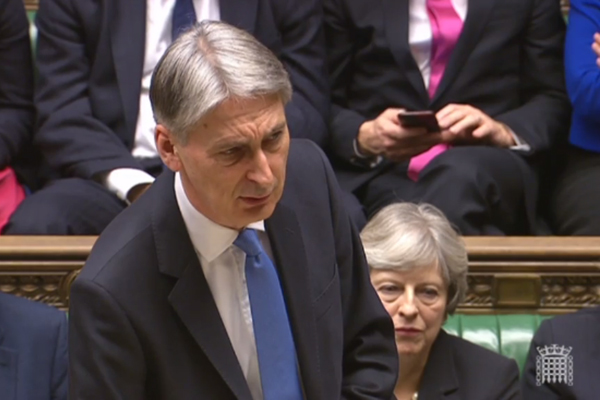You are viewing 1 of your 1 free articles
How do we make Universal Credit work?
In light of a damning report from the National Audit Office, Gavriel Hollander asks sector leaders what they would do to reform Universal Credit. Picture by Rex Features
Work and pensions secretary Esther McVey
Universal Credit is in a mess. It’s eight years and counting since then-work and pensions secretary Iain Duncan Smith announced plans to roll six benefits, including housing benefit, into one monthly direct payment, but the failings that have hounded the project since the outset continue.
Last week, a damning National Audit Office (NAO) report into Universal Credit outlined a series of failings, warning it has not delivered anywhere near the planned savings, while leaving large numbers of people facing increased hardship.
With the NAO also stating that the government “does not have a realistic alternative but to continue” with the policy at this late stage in its implementation, Inside Housing asked the sector what the current work and pensions secretary Esther McVey should do now.
Darren Hartley, chief executive of TAROE Trust, says the implementation of Universal Credit has created a system that punishes claimants.
“The systems need to be more flexible and pragmatic, and be able to listen to people in different circumstances,” he says.
The NAO found that 25% of new claimants did not receive full payment on time. Mr Hartley calls for upfront payments to be made more quickly and for the direct payments system to “be more responsive”.
He also echoes the NAO report in arguing for the government and its agencies to do “more upfront work with individuals in the transition phase” as they move on to Universal Credit.
He adds: “The testing and implementation and the system design is punitive. A system that supports them to get into work and sustains tenancies would give much better outcomes.
"The NAO found that 25% of new claimants did not receive full payment on time"
“We want a more holistic approach to understanding values and outcomes. That is more likely to deliver better outcomes in value-for-money terms. Short-termism is stopping it achieving long-term aims.”
Katie Schmuecker, head of policy at the Joseph Rowntree Foundation, says the government can still make changes that will make Universal Credit work.
“We are supportive of the principles behind Universal Credit, but the way in which it is being delivered is creating problems for some people,” Ms Schmuecker tells Inside Housing. “In particular, the delays people are experiencing are causing hardship.”
She says that the system of offering advance payments to claimants waiting for their first slice of Universal Credit is flawed.
“The government has dealt with the problem by offering advances for future months. These still have to be paid back, so all it does is mean you receive less each month for the next year; the same thing can happen with other bills like utilities.
“You can end up with lots of repayments coming out of what is a relatively small pool to begin with. We know that causes destitution in the existing system and we are concerned about what it might mean under Universal Credit.”
She also said the 2016 decision to cut the work allowance – how much can be claimed by in-work claimants – runs counter to the stated aim of Universal Credit to make work more attractive.
“In the medium-to-long term we welcome the objective Universal Credit has of making it easier for people to work. However, work is increasingly unreliable as a route out of poverty.
“We are concerned about what impact [the cut] will have on living standards. Government could do more to help by increasing the work allowance.”
For Brendan Sarsfield, chief executive of Peabody, there needs to be a change in attitude towards benefit claimants to make Universal Credit work.
“It’s useless working out how to cut and slice it if [the government is] always looking to save money and looking for the worst in people,” he explains. “Social housing tenants have felt stigmatised and the unemployed now feel stigmatised.”
"I don’t think we were listened to at a political level. We need to be trusted third parties." - Brendan Sarsfield, Peabody
As chief executive of Family Mosaic before its 2017 merger with Peabody, Mr Sarsfield has first-hand experience of Universal Credit implementation, due to the association being among the handful chosen to pilot the scheme with its tenants.
He says the lessons his organisation learned in that period have not been heeded.
“I don’t think we were listened to at a political level. We need to be trusted third parties, so when we say: ‘You’ve got this wrong’, we need to be believed.”
Among Mr Sarsfield’s suggestions for improving the system are: increasing the amount of support offered to people switching to Universal Credit; reducing the waiting period for payments to two weeks, in line with the current housing benefit regime; and improving so-called Alternative Payment Arrangements so that they do not push claimants into debt they cannot manage.
Sue Ramsden, policy leader at the National Housing Federation, agrees that the government has so far not taken advantage of housing associations and their existing relationships with tenants.
“They need to make the system more effective in the way it works with social landlords,” she says.
Data sharing and making use of landlords’ resources when it comes to tenant support are among the ways she lists that housing associations and the government could improve the service.
Kevin Dodd, chief executive of WDH – another landlord to take part in the pilot – agrees. “The issue for the [Department for Work and Pensions] DWP is co-ordination,” he says. “It’s not just about resources. DWP and local authorities have a wider brief [than housing associations] but I believe that housing associations are ideally placed to provide some of those wrap-around services.”














